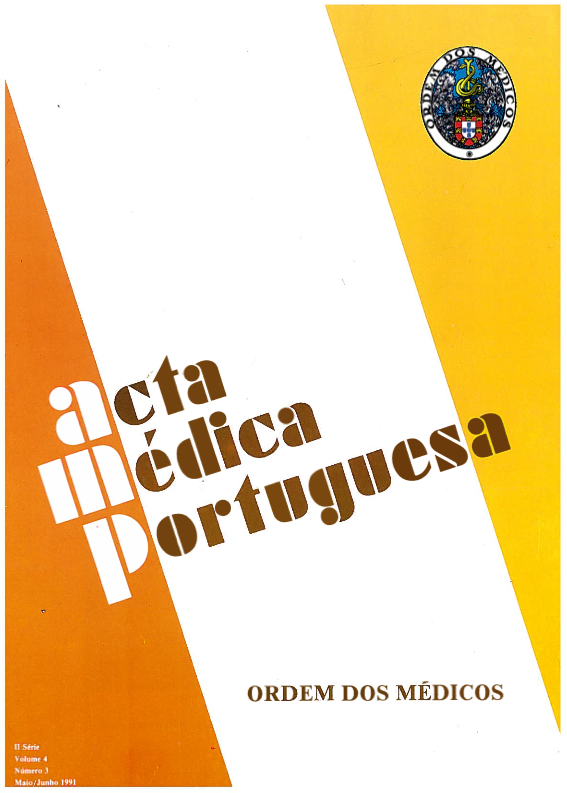Hepatic markers in a population of tavern customers.
DOI:
https://doi.org/10.20344/amp.3348Abstract
We undertook this study to determine the prevalence of hepatic enzymes alterations in ambulant and healthy daily consumers of alcoholic beverages. In order to achieve this aim, a population of 107 regular customers from Coimbra's taverns was utilised. The percentage of results above the reference values was: Alk. Ph.-0%, AST/ALT--10.3%, T. Bil.--18.7%, ALT--37.4%, AST--44.9%, D. Bil.--52.3%, GGT--54.2%, GIDH--55.8%; seven individuals had normal levels of all hepatic markers, seventeen had 1 altered parameter, twenty two had 2, fourteen had 3, fifteen had 4, twenty had 5, eleven had 6, and one had 7. However, most of the alterations occur to levels close to normality. The correlation with the doses of alcohol is positive but low for all studied parameters, being statistically significant for some of them. The main conclusion of the present work is the demonstration that almost all tavern customers may already have disturbances of their hepatic biochemistry, though they look healthy, what represents an important and serious Public Health problem.Downloads
Downloads
How to Cite
Issue
Section
License
All the articles published in the AMP are open access and comply with the requirements of funding agencies or academic institutions. The AMP is governed by the terms of the Creative Commons ‘Attribution – Non-Commercial Use - (CC-BY-NC)’ license, regarding the use by third parties.
It is the author’s responsibility to obtain approval for the reproduction of figures, tables, etc. from other publications.
Upon acceptance of an article for publication, the authors will be asked to complete the ICMJE “Copyright Liability and Copyright Sharing Statement “(http://www.actamedicaportuguesa.com/info/AMP-NormasPublicacao.pdf) and the “Declaration of Potential Conflicts of Interest” (http:// www.icmje.org/conflicts-of-interest). An e-mail will be sent to the corresponding author to acknowledge receipt of the manuscript.
After publication, the authors are authorised to make their articles available in repositories of their institutions of origin, as long as they always mention where they were published and according to the Creative Commons license.









